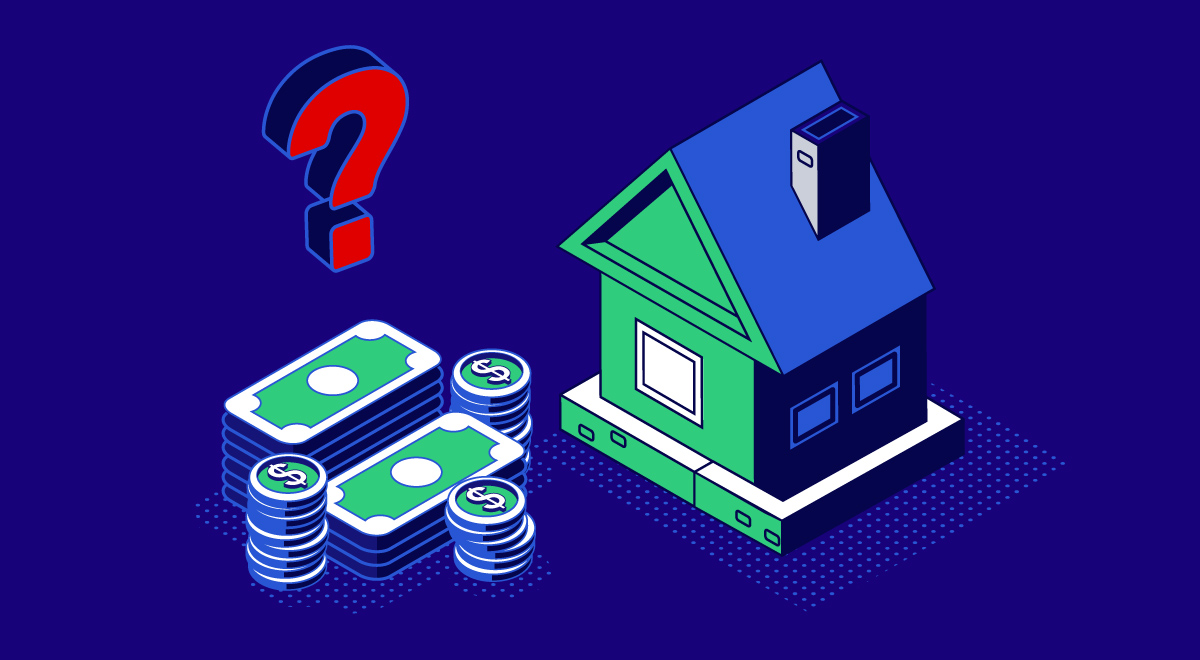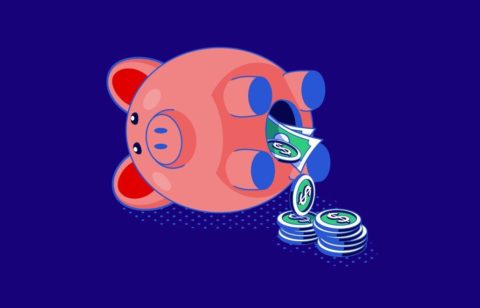How debt consolidation affects buying a home depends on what kind of debt consolidation you’re talking about. While certain kinds of debt consolidation may have no direct effect on home buying, other kinds may have a significant impact on your credit score and, therefore, your ability to purchase a home.
What Is Debt Consolidation?
Debt consolidation can refer to one of two things:
- Borrowing money to pay off a combination of debts. Ideally, you want to roll those debts into one monthly payment at an overall lower interest rate.
- Working with a debt relief company or credit counselor to merge various debts and pay them off. They may be able to help you lower your overall debt burden, and take advantage of a lower interest rate.
Types Of Debt Consolidation
Debt consolidation comes in many forms. Here’s a look at five of them, and how debt consolidation could affect your credit and the ability to get a mortgage loan.
Balance transfer
Some credit card issuers offer balance transfers at 0% interest or a low-interest rate so you can consolidate several debts into one credit card. The rate offer typically lasts for a certain period, such as 12 months. After that period, the low- or no-interest rate offer ends, and a much higher interest rate kicks in. Credit card issuers often charge a fee for balance transfers.
If you accept a balance transfer offer through an existing credit card, your credit score — and your ability to get a home loan — likely won’t be affected. That’s because you’re essentially shifting a balance from one card to another. But, if you begin running up a balance again on the card that you transferred debt from or you open more credit card accounts, your credit score could go down.
If you apply for a new balance transfer credit card to take advantage of a low-interest rate offer, your credit score could temporarily decrease. That’s because your application will trigger a “hard” inquiry on your credit report. Over the long run, though, your credit score could climb as you pay off the balance transfer debt (as long as you don’t take on a lot of new debt).
401(k) loan
Taking out a loan against your employer-sponsored 401(k) retirement plan to consolidate debt won’t directly affect your credit score. However, your credit score could go up once you consolidate the debt and reduce the overall amount you owe. Decreasing your debt could help you obtain a home loan.
Keep in mind that borrowing money from your 401(k) may mean you miss out on investment gains and wind up with less money for retirement.
Personal loan
Taking out a personal loan to consolidate debt can pay off if the interest rate for the loan is lower than the overall interest rate for the debt you’re consolidating. Since this type of loan is ideally supposed to reduce your debt burden, you could enjoy a rise in your credit score as a result. The same holds true if you always make on-time loan payments. All of this positive activity could improve your chances of obtaining a home loan.
It’s worth noting that your application for a personal loan could lead to a “hard” inquiry on your report and send your credit score temporarily lower. In the long term, mishandling the loan by making late payments or failing to make repayments at all could seriously damage your credit score and, thus, your ability to get a home loan.
Debt consolidation loans are common. A 2019 survey by the Experian credit bureau found that 26% of people who had taken out a personal loan had used the money to consolidate debt. In a 2020 survey by U.S. News & World Report, most Americans indicated they consolidated less than $20,000 in debt with a debt consolidation loan.
Credit counseling
Working with a nonprofit credit counseling service on tackling your debt may or may not affect your plan to buy a home.
If a credit counselor puts you on a debt management plan, the interest rates on your debts will likely be lowered. You could pay less overall through a debt management plan than you were paying for all of the various debts. On top of that, you’ll be paying off your debts in full and building a positive payment record, both of which should boost your credit score. Eventually, all of this may put you in a better position to borrow money for a home purchase.
When you’re in a debt management plan, the credit counseling agency does not notify the credit bureaus, meaning this won’t appear on your credit report. However, you frequently must close your credit accounts when you’re enrolled in such a plan. This action will show up on your credit report and probably will ding your credit score.
All of that being said, if your credit score, credit history, and debt-to-income ratio remain in decent shape, you could still qualify for a mortgage. Keep in mind, though, that the interest rate on the mortgage might be higher when you’re going through a debt management plan.
Debt Relief
Debt relief can be very helpful when you’re trying to improve your finances. However, settling a debt for less than the full amount you owe could harm your credit score, which could affect your ability to buy a home.
Still, settling credit card debts is better for your credit than simply not paying the debts. In this way, debt relief can have a positive impact on applying for a mortgage. On the downside, a settled debt remains on your credit report for seven years from the original delinquency date.
How Does Debt Consolidation Affect Mortgage Loans?
Depending on which debt consolidation method you choose, it could improve your debt-to-income ratio — a key factor that mortgage lenders consider in reviewing your application. It could free up more money to put toward a down payment on a house.
Why Is Your Debt-To-Income Ratio So Important?
A mortgage lender calculates your debt-to-income ratio by comparing how much money you owe each month with how much money you’re taking in each month. As part of this formula, a lender looks at debts such as:
The debt-to-income ratio is shown as a percentage. Typically, 43% is the highest ratio allowed to qualify for a mortgage, according to the Consumer Financial Protection Bureau.
Your debt-to-income ratio offers a mortgage lender some insight into your ability to make monthly loan payments. A lower debt-to-income ratio can signal that you’re less of a risk in terms of missing loan payments, while a higher debt-to-income ratio might tell a lender that you’re at greater risk of skipping loan payments.
Unfortunately, if debt consolidation didn’t move the needle much in terms of your debt-to-income ratio, it might not help a lot in qualifying for a mortgage. On the other hand, improvement in the ratio could mean improved chances of getting a mortgage.
How To Prepare For A Home Purchase After Debt Consolidation?
Consolidating your debt isn’t the only move that could help you purchase a home. Here are six other things you can do to prepare.
- Save money. You’ll want to build up enough cash for a down payment on a home (typically 6% of the loan value). You also should aim to have plenty of cash on hand to demonstrate to a lender that you’re in good financial shape.
- Cut spending. Decreasing your spending can help you allocate more money for a down payment and move you closer toward qualifying for a mortgage.
- Boost your credit. As you gear up to buy a home, look for ways to make your credit shine. This could include slashing your debt even more and always paying your bills on time.
- Shoot for a low debt-to-income ratio. While a 43% percent ratio may result in approval for a mortgage, your odds of approval will go up if the ratio is even lower. If possible, work toward a ratio of 20%.
- Assess your financial habits. To properly set yourself up for buying a home, it’s wise to examine the habits that prompted you to consolidate debt in the first place. Are you relying too much on credit cards? Are you paying only the minimum amount on your credit card bills each month? Correcting bad habits can give you a better shot at homeownership.
- Come up with a budget. Developing a household budget can help you balance your income and spending, potentially putting you on a smoother path toward homeownership.
At National Debt Relief, we take pride in empowering people to regain their financial stability through our proven debt relief program. Contact us and talk to a financial expert who will work with you to find the best option to settle your debt and help you achieve financial independence.







